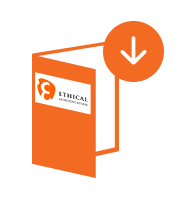Computers were used very early in clinical research to support the generation, collection and analysis of data, and their importance kept growing over time. Today, from patient selection and randomization to study data submission, virtually every aspect of a clinical trial depends on some software. Clinical endpoint adjudication is a relatively young discipline in clinical research and the question legitimately arises: do we need yet another endpoint adjudication software to perform it? The answer is undeniably yes as long as the chosen software is efficient and reliable. One should make sure they make a careful decision.
Clinical endpoint adjudication: a matter of data
Adjudicating clinical endpoints during a clinical trial is vastly a matter of moving data around. Patient information in various forms must be collected, potentially anonymized and blinded, made available to the assessors and stored for future inspections. Assessors’ comments and decisions must be recorded and conveyed to the study sponsor and all this in real time as the study unfolds. Endpoint adjudication software is the best way to perform these tasks.
Clinical endpoint adjudication is comparing experts’ opinions
One of the particular requirements of clinical endpoint adjudication is the need to collect and compare experts’ opinions in real-time and, if needed, escalate the decision to a tie-braker or even a full committee review. Much of this can be automated with an efficient endpoint adjudication software.
Clinical adjudication is about good processes
Like many other aspects of clinical trials that are too complex to be performed by mere instinct, clinical endpoint adjudication depends on a robust set of processes that guide the different parties and ensure proper execution. A good endpoint adjudication software has the ability to embed processes as defined by each sponsor and serve as a guide for users.
A good endpoint adjudication software makes all the difference
Software has invaded our lives in so many ways that it would take a book to describe. The reason is simple: it provides good tools for automating many resource-consuming tasks. However, as everything else, software comes with a cost. Putting aside the acquisition and maintenance, the use of any new software requires at least some degree of education and training. It also introduces dependency on the software’s performance, risk of failure or vulnerability (bugs, misconceptions, malicious attacks etc.) and the need for regular updating over time. So, every time the question arises, one needs to balance the benefits against the cost. Endpoint adjudication software is no exception to this rule and choosing a good one can prove the smartest move one can do while preparing a clinical development program.
What to look for in an endpoint adjudication software?
So, what does a good endpoint adjudication software need to be able to do? There are at least four key characteristics that you should always look for.
- Flexibility is paramount because each clinical trial is different and a good endpoint adjudication software must be able to easily adapt to any study design.
- User-friendliness is also an important quality to look for because everyone is busy and will appreciate an intuitive tool that does require to read the manual every time you use it.
- GCP-compliance cannot be forgotten because GXP is the overarching framework for all clinical trials. A good endpoint adjudication software must be conceived with GCP in mind from the first day.
- Finally, cost-effectiveness should not be overlooked because the cost of clinical trials is high and any addition makes management teeth grind. Luckily, today flexible solutions used for endpoint adjudication software such as SaaS (software as a service) allow to control cost while instantly taking advantage of upgrades and improvements based on collective experience and feedback. Their use is simple. No installation is required on local machines and once configured, the software is readily available. Additionally, these solutions are environment friendly as they optimize the use of server machines.
In conclusion a good endpoint adjudication software will take you a long way provided that you pay attention to its key characteristics. Choose a user-friendly, versatile, GCP-compliant platform, preferably cloud-based as a SaaS. You will be able to use it for multiple studies with minor adjustments maximizing internal and external knowledge and keeping the cost contained. Ethical’s Adjudication® is the efficient, reliable all-in-one solution for the management of clinical endpoint adjudication. Feel free to contact us for any question.




